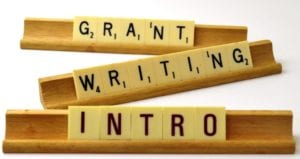A Word of Advice on Grant Writing

Diaspora Dialogues
May 18, 2016

With the June 15th TAC Grant for Writers fast approaching, Diaspora Dialogues asked TAC Dance Officer and Literary Officer, Timea Wharton-Suri, a few questions.
1. What is your role as a Literature Officer for the TAC?
The Officer helps guide applicants through the entire application process, answering questions before the deadline, providing feedback on draft applications, and then answering questions after the results are released. We also select the jury members once submissions are in. We review the types of applications received and try to find jury members who can speak to the diversity of work submitted. Officers facilitate the adjudication process, keeping the discussions as fair and on track as possible.
2. Are there guidelines for juries that help them determine which works carry literary significance?
Unlike project grant applications, where the applicants must provide budgets, contingency plans, justification for chosen contributors and venues, etc., Writers Program applications are quite simple and the jury mainly assesses the support materials/writing sample, which is the bulk of the application. The jurors are providing their subjective opinions on the strength of the writing given their experience. We change use an anonymous application process and change juries each round for this reason. We also endeavour to ensure that a diversity of practice is supported in each round, i.e. novels, poetry, short stories, YA, etc., but the ultimate choice is left to the jury.
3. What is the worst mistake a writer can make on her or his application?
There isn’t one “worst” mistake, as it depends on the type of writing being submitted, but here are a few mistakes:
- Not using the entire allotment of space for the writing sample, i.e. TAC only asks for a maximum of 15 pages for prose and 10 pages for poetry, so use all of the space. Even though many readers have a strong sense of their assessment of the writing on the first page, they do keep reading on.
- Submitting work with spelling and grammatical errors. To other writers, finding a typo and turn them off of the entire submission. Take care throughout your application.
- Not selecting the strongest section of the writing as a sample. You do not have to start at page 1 – submit the strongest writing sample that you have for the current work, and make sure it gets to the point quickly. If you need to provide context for the sample, do so in the “project description” section.
- Not having a sample of the current work ready at the time of application. Jurors want to see a sample of the current work, not a past work.
- Trying to guess what the jury wants instead of submitting the work you believe in most. You can never predict what the jury will say, as the members haven’t been selected until after the submissions are in. Juries change every time, and in my experience, they are all quite different. Focus on submitting your strongest writing and nothing else. If you don’t receive the grant, keep writing and keep going. Many prominent authors don’t receive a grant until their second or third time trying with the same project, once it’s farther along in development.
4. Are certain disciplines more competitive than others?
Writers grants are extremely competitive at TAC, with a 20%–30% success rate, depending on the round. We receive mostly prose/novel submissions that are destined for an adult audience, but the grants are generally awarded in line with type of work submitted. For example, if 15% of the submissions were poetry based, the percentage of grants awarded for poetry is usually close to 15%.
We are seeing more diverse types of writing each round, with submissions following publishing trends. Genre-based work is gaining more acceptance in the community, and TAC encourages juries to treat all submissions equally. It’s not about what style the jury likes, it’s about the strength of the writing in the author’s stated style/genre/intension.
5. What advice would you give to a writer applying for a grant?
I would repeat: Focus on submitting your strongest writing and don’t try to guess what the not-yet-chosen jury will fund.
If you don’t receive the grant, keep writing and keep going. You can’t receive the subjective artistic jury feedback, but you can call the Officer to ask if there were any suggestions to strengthen your application.
